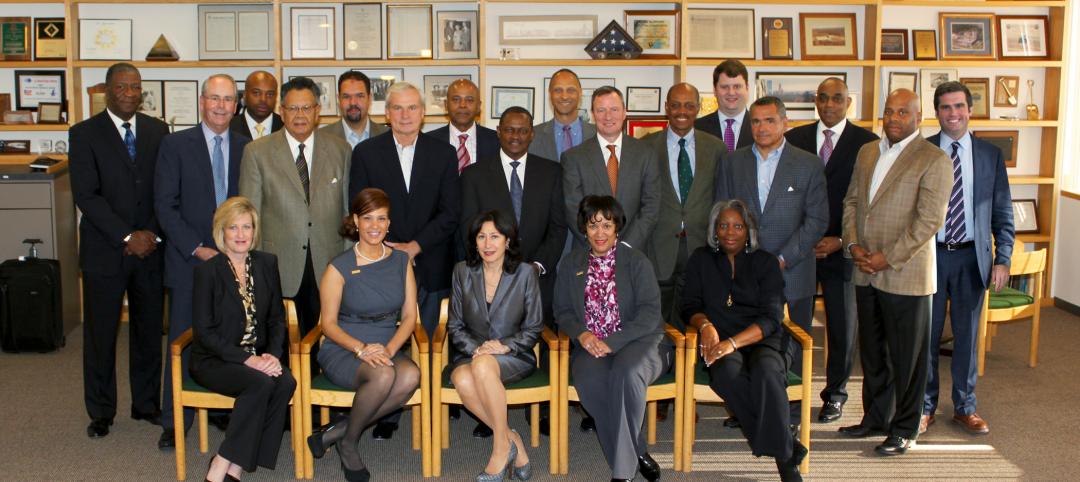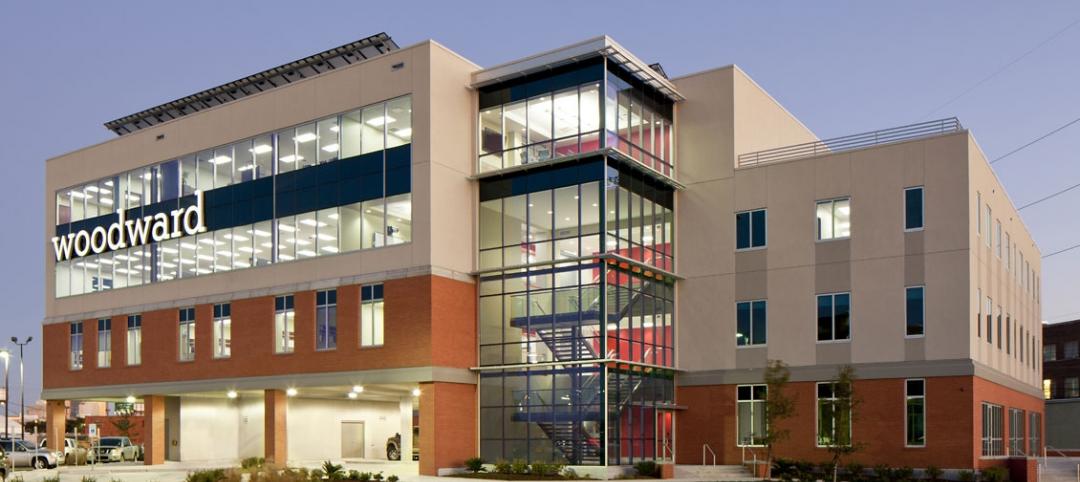WASHINGTON, D.C.--(ENEWSPF)--November 30, 2010. During a live online chat at the White House earlier today, U.S. Energy Secretary Steven Chu announced that 24 projects are receiving a total of $21 million in technical assistance to dramatically reduce the energy used in their commercial buildings. This initiative, supported with funding from the American Recovery and Reinvestment Act, will connect commercial building owners and operators with multidisciplinary teams including researchers at DOE's National Laboratories and private sector building experts. The teams will design, construct, measure, and test low-energy building plans, and will help accelerate the deployment of cost-effective energy-saving measures in commercial buildings across the United States.
"These Recovery Act projects are bringing together experts from our National Laboratories and the private sector to help businesses and organizations reduce the energy they use in their facilities, saving them money on their energy bills and making them more competitive economically," said Secretary Chu. "This initiative will also demonstrate to other commercial building operators that cost-effective, energy-efficient technologies exist today that will help lower the operating and energy costs of their buildings."
Through DOE's Commercial Building Partnerships, teams comprised of private sector technical experts and personnel from National Laboratories will help guide projects to achieve 30 percent measured energy savings in existing buildings and 50 percent energy savings in new construction projects. About half of the two dozen projects focus on energy efficiency upgrades for existing buildings. The three-year projects will provide comprehensive business and technical case studies for broad publication, including actual energy performance data from the completed projects, to help spur wider adoption of energy-efficient building practices across the industry.
The projects are funded with a public/private cost-sharing agreement, where the building owners and operators contribute at least 20 percent. Building owners and operators do not receive direct funding through the project, but instead get access to state-of-the-art technical guidance to implement energy efficiency technologies throughout the design, construction, and evaluation phases of their building and retrofit projects. This technical expertise includes energy modeling and energy performance verification by laboratory researchers and private sector experts.
The selected building owners and operators benefit by learning about measures they can apply across their extensive building portfolios. The use of private sector consultants and National Laboratory experts helps ensure that the energy efficiency measures and lessons learned in the projects will be quickly adopted by the marketplace.
Three DOE National Laboratories-Lawrence Berkeley National Laboratory (LBNL), the National Renewable Energy Laboratory (NREL), and the Pacific Northwest National Laboratory (PNNL)-will manage the effort and provide technical assistance for the selected projects. The aggressive energy efficiency design goals for each project include reasonable returns on investment and must meet other business criteria established in collaboration with the partners.
Each project will receive technical assistance valued at between $200,000 and $1.2 million, depending on the scope and nature of the plan. The following is a list of the selected projects:
* Cascadia Center for Sustainable Design and Construction; The Bullitt Foundation; Seattle, Washington
* Center for Alternative, Renewable Energy, Technology and Training; Clark Atlanta University; Atlanta, Georgia
* The College of Architecture + Planning at the University of Utah; Salt Lake City, Utah
* The Defense Commissary Agency; Lackland Air Force Base; San Antonio, Texas
* Grand Valley State University; Allendale, Michigan
* Hines; Somerset, New Jersey
* The Home Depot; Rocklin, California
* Living City Block; Denver, Colorado
* The LOOP at the University of California; Mesa Lane Partners; Santa Barbara, California
* Long Beach Gas and Oil; Long Beach, California
* Massachusetts Institute of Technology; Cambridge, Massachusetts
* Oregon Built Environment & Sustainable Technologies Center; Portland, Oregon
* Shy Brothers Farm; Westport, Massachusetts
* Sierra Nevada Job Corps; Reno, Nevada
* Smart Grid Development; North Kingstown, Rhode Island
* Twentieth Century Fox Film Corporation; Los Angeles, California
* University of California Merced; Merced, California
* University of South Carolina; Columbia, South Carolina
* U.S. Army; Fort Bragg, North Carolina
* U.S. General Services Administration; Portsmouth, New Hampshire
* U.S. General Services Administration; Region 9 locations
* U.S. General Services Administration; San Francisco
* Walmart; two locations to be determined
During the selection process, each building owner or operator submitted plans for designing a new building or upgrading existing buildings and committed to working with National Laboratories and technical experts. Project selection criteria included the likelihood of achieving significant energy savings, the probability of success, widespread deployment potential, contribution to a diverse DOE portfolio of energy-saving solutions, and the organizations' commitment to improving energy efficiency.
Learn more about Commercial Building Partnerships and other projects that are part of DOE's Building Technologies Program.
Related Stories
| Dec 6, 2011
Construction industry leaders gather for forum on diversity
Declared a “groundbreaking” event for the industry, Gilbane’s First Annual National Partners Council Forum addressed diversity and inclusion as well as building partnerships with minority, veteran, and women-owned businesses.
| Dec 6, 2011
Mortenson Construction completes Elk Wind Project in Iowa
By the end of 2011, Mortenson will have built 17 wind projects in the state generating a total of 1894 megawatts of renewable power.
| Dec 6, 2011
?ThyssenKrupp acquires Sterling Elevators Services
The acquisition of Sterling Elevator Services Corporation is the third acquisition completed by ThyssenKrupp Elevator AG in the last three months in North America.
| Dec 6, 2011
Vivenzio named vice president of building performance practice at Thornton Tomasetti’s New York Office
Vivenzio, a licensed architect in New York and New Jersey, has more than 28 years of experience in architectural project management, construction administration, building diagnostic services and forensic investigation.
| Dec 6, 2011
New office building features largest solar panel system in New Orleans
Woodward Design+Build celebrates grand opening of new green headquarters in Central City.
| Dec 5, 2011
New York and San Francisco receive World Green Building Council's Government Leadership Awards
USGBC commends two U.S. cities for their innovation in green building leadership.
| Dec 5, 2011
Summit Design+Build begins renovation of Chicago’s Esquire Theatre
The 33,000 square foot building will undergo an extensive structural remodel and core & shell build-out changing the building’s use from a movie theater to a high-end retail center.
| Dec 5, 2011
Fraser Brown MacKenna wins Green Gown Award
Working closely with staff at Queen Mary University of London, MEP Engineers Mott MacDonald, Cost Consultants Burnley Wilson Fish and main contractor Charter Construction, we developed a three-fold solution for the sustainable retrofit of the building.
| Dec 5, 2011
RJM Construction begins building Nova Classical Academy in St. Paul
As the general contractor, RJM is constructing the 94,000-sf building that will consolidate the St. Paul school’s two other locations.
| Dec 5, 2011
Gables Residential brings mixed-use building to Houston's Tanglewood area
The design integrates a detailed brick and masonry facade, acknowledging the soft pastel color palette of the surrounding Mediterranean heritage of Tanglewood.
















